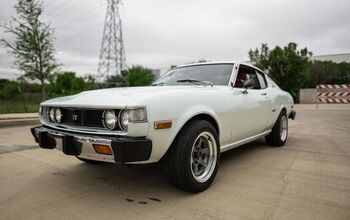Fiat Chrysler-UAW Bargaining May Not Be a Breeze

After UAW-affiliated Ford workers ratified a collective agreement Friday, Fiat Chrysler is next — and last — in line to hammer out a deal with the union. Ford has an easy go of it, requiring just five days of bargaining before reaching a tentative deal; earlier, General Motors suffered financial hardship after its U.S. workforce walked off the job for 40 days.
Being first at the table, GM’s bargaining is seen as the heaviest lifting of the Detroit Three. Its deal serves as a model for others to follow, and you can be sure the wage increases, pathways to full-time employment, and status-quo healthcare benefits contained within will be held up by UAW bargaining team members when they face the FCA team.
However, for FCA, the nature of the automaker’s workforce could make reaching a deal a rocky journey.
As illustrated by Bloomberg, FCA’s record profits is in part a result of lean labor costs. Thirteen percent of the automaker’s American workforce is made up by temporary workers, which is a higher slice than at Ford or GM.
In 2019, hourly labor costs at FCA average $55 an hour — a figure that groups wages, payroll taxes, benefits, and worker’s compensation insurance. At Ford, it averages $61 an hour, while each GM worker costs the company, on average, $63 an hour.
Last time FCA hammered out a deal with the UAW, workers rejected the first draft handed their way, seeking instead higher signing bonuses and a better wage increase for temporary employees. The same could happen this time around if FCA doesn’t pony up and start acting like its Detroit rivals.
There’s also the chance that, if FCA holds the line too much, workers will walk off the job. That’s not an appealing prospect for an automaker attempting a merger with France’s Groupe PSA.
As Bank of America Merrill Lynch analyst John Murphy wrote late last week, FCA “would do well to buy more labor peace in cash upfront instead of having fixed costs.”
“Gains by [temporary and in-progression workers], if applied to FCA, would materially increase cost, possibly a hit to operating margins in the range of 300 basis points, and could significantly shrink FCA’s labor advantage over its rivals Ford and GM,” Murphy wrote.
While labor costs don’t make up a major part of a vehicle’s sticker price, it’s not inconsequential. Compared to foreign automakers operating in the U.S., FCA’s labor costs are just $5 an hour greater, placing it closer to the likes of Toyota and Honda than Ford or GM.
According to Kristin Dziczek, vice president of industry, labor and economics at the Center for Automotive Research, FCA may have to open its wallet and swallow the unwanted costs.
“It might be that it’s time to pay the difference on that average hourly labor cost advantage that the company has enjoyed a decade here,” she told The Detroit News.
[Image: Fiat Chrysler Automobiles]

More by Steph Willems
Latest Car Reviews
Read moreLatest Product Reviews
Read moreRecent Comments
- Spectator Wild to me the US sent like $100B overseas for other peoples wars while we clammer over .1% of that money being used to promote EVs in our country.
- Spectator got a pic of that 27 inch screen? That sounds massive!
- MaintenanceCosts "And with ANY car, always budget for maintenance."The question is whether you have to budget a thousand bucks (or euro) a year, or a quarter of your income.
- FreedMike The NASCAR race was a dandy. That finish…
- EBFlex It’s ironic that the typical low IQ big government simps are all over this yet we’re completely silent when oil companies took massive losses during Covid. Funny how that’s fine but profits aren’t. These people have no idea how business works.


































Comments
Join the conversation
Have Manley the whistleblower handle the negotiations.
“General Motors suffered financial hardship after its U.S. workforce walked off the job for 40 days” Not really, hardly, and boo-hoo. The GM executive old boys club still get their bonuses, career path, dumb knee-jerk decisions, and now a new scapegoat: for the next few quarters of financial statements, they get to bill and associate more unrelated poor management decisions to the “union strike effects” as losses or expenses. Stay tuned; Extraordinary items … here we come! More damage has been done to GM by shockingly dumb executive decisions, than was ever was done by a UAW strike.